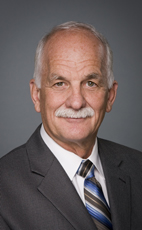Mr. Speaker, the Government of Canada recognizes the value and contribution of proactive mitigation measures taken before an emergency or disaster occurs to eliminate or reduce the impacts and risks of hazards in order to protect lives, property, the environment, and reduce economic disruption. Not only does mitigation serve to reduce the impact of disasters on the lives of Canadians, but it is also a cost-effective approach for reducing the economic burden of disaster response and recovery costs on all levels of government, businesses, communities, families and individuals.
On June 6, 2011, while visiting the Quebec region of Montérégie to see first-hand the impact of the 2011 spring floods, the Prime Minister announced that the Government of Canada will share on a 50-50 basis the costs of any permanent flood mitigation measures taken specifically for this year’s flooding that are not otherwise eligible under the federal disaster financial assistance arrangements.
Public Safety, the lead federal department for meeting this commitment, has been working with other government departments and the Province of Quebec to establish a one-time mitigation contribution program to cost share eligible permanent flood mitigation measures. Input is being sought from the Province of Quebec on the types of measures put in place and their costs to inform the development of the program terms and conditions, including the specific eligibility criteria for cost sharing.
The principles enshrined in “An Emergency Management Framework for Canada”, the national framework, second edition, approved by federal-provincial-territorial, FPT, ministers responsible for emergency management in January 2011, and in the national disaster mitigation strategy, endorsed by FPT ministers in January 2008, are being used to inform the development of this one-time mitigation contribution program.
As outlined in these key FPT documents, mitigation is an important part of a robust emergency management framework. Disaster prevention and mitigation measures are those that eliminate or reduce the impacts and risks of hazards through proactive measures taken before an emergency or disaster occurs. Measures may be structural, for example, flood dikes, or non-structural, for example, land use zoning and building codes.
Public Safety is seeking detailed estimates from the Province of Quebec on the costs of the permanent mitigation measures put in place for this year’s flooding in order to recommend a funding amount to establish a one-time mitigation contribution program, which would allow reimbursement of eligible incurred costs.
Once the program is established, the Government of Canada will share on a 50-50 basis the costs of eligible permanent flood mitigation measures put in place by the Province of Quebec. The exact amount that the Government of Canada will reimburse will depend on the costs of the eligible provincial measures put in place. Until a formal claim has been submitted by the Province under the program, it is not possible to estimate how much the Government of Canada will spend.
Public Safety is working closely with the Ministère de la Sécurité publique of Quebec as the program is being developed and will continue to do so as we move forward. The goal is to have the program established in early 2012. Once in place, Public Safety will share the detailed eligibility criteria with the province and work with it to facilitate the processing of its cost-sharing claim so that funds can flow in as timely a manner as possible.

